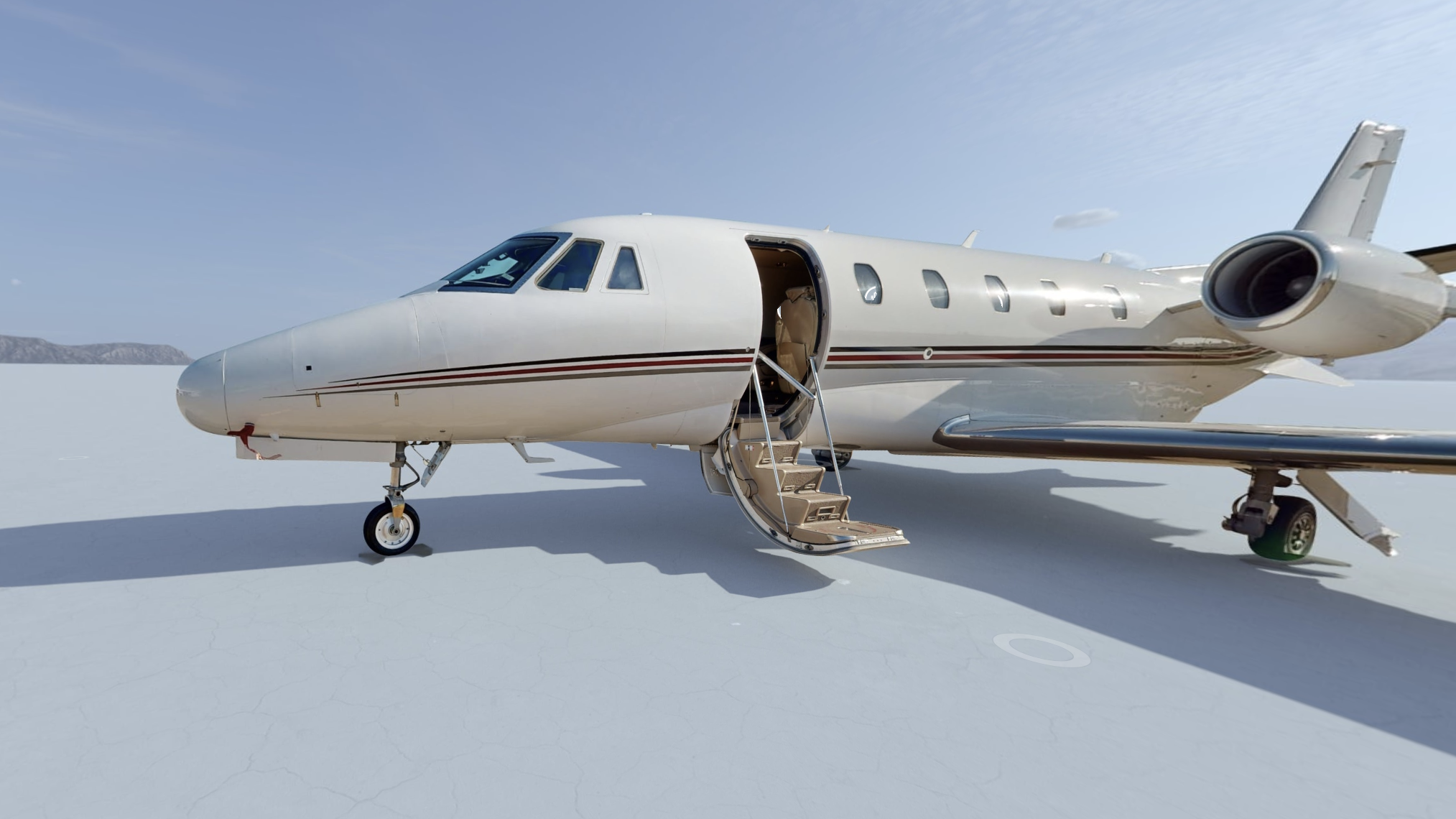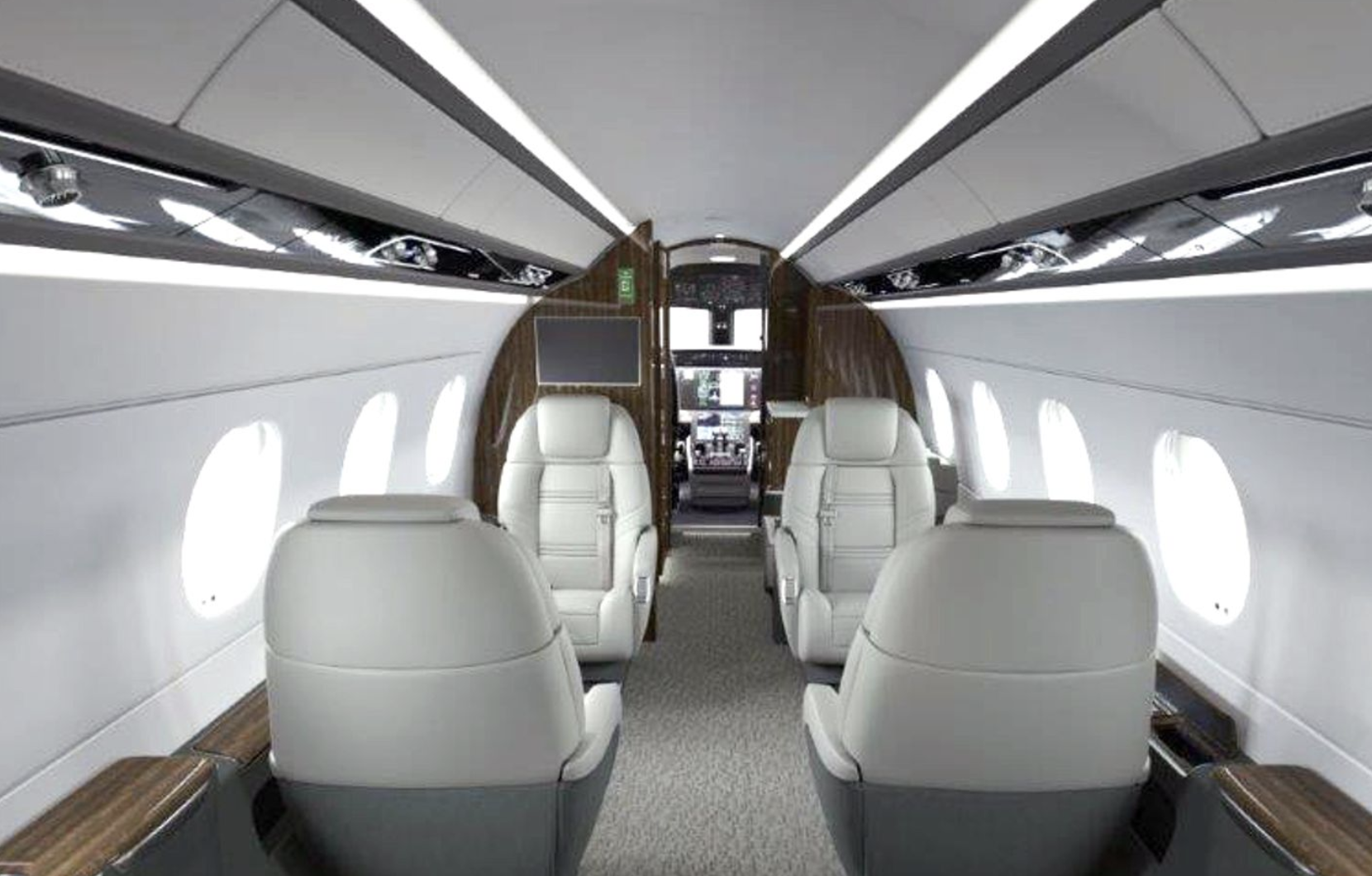NetJets, the world’s largest private jet operator, will have a new CEO at its parent company by the end of 2025.
NetJets, Inc. includes management and charter operator Executive Jet Management.
FlightSafety is also part of Berkshire Hathaway’s aviation-related holdings.
Concluding Berkshire Hathaway’s annual meeting in Omaha, Nebraska, Warren Buffett said earlier today that he would recommend to the company’s board that Greg Abel assume his position as chief executive.
Buffett will turn 95 on Aug. 30th.
Abel is currently the vice chairman and CEO of Berkshire Hathaway Energy.
He has been tabbed as Buffett’s successor for some time.
CNBC reports that Buffett will continue as chairman.
Berkshire Hathaway bought NetJets in 1998 for $711 million.
‘It’s in a class by itself. It’s done what Ferrari has done in a different sort of way in cars’
– Warren Buffett describing NetJets
Buffett’s entry into the business aviation segment is widely credited for encouraging investment in the sector.
Kenn Ricci, chairman of rival Flexjet, recently talked about Buffett’s impact during an NBAA podcast:
‘We estimated we needed about $60 million to $80 million for core fleet buying used aircraft. We went out to the banks with my great idea…and maybe we had $7 million, $10 million in debt available…Then, in 1998, Warren Buffett bought NetJets. And every bank I had been to thought I was a genius all of a sudden. And they were all looking to get into the industry and we had $500 million. In some way, but for Warren endorsing our industry, I never would have found the debt capital to be able to build the inventory and go as fast as I did.’
The high-visibility Berkshire Hathaway platform has also promoted private aviation to a wider audience of businesses and HNW consumers.
NetJets programmatic offerings—guaranteed jet cards and fractional ownership—fill the gap between ad hoc charters and full ownership, encouraging more consumers to enter the segment.
At the end of 2024, NetJets had 9,106 employees.
Buffett and Airlines
In 2017, amid another round of airline investments, Buffett told shareholders, “You couldn’t pick a tougher industry.”
He also reprised his famous 2007 quote, “If a far-sighted capitalist had been present at Kitty Hawk, he would have done his successors a huge favor by shooting Orville down.”
After his first airline investment in 1989, Buffett wrote, “In the case of our commitment to USAir, industry economics had soured before the ink dried on our check. As I’ve previously mentioned, it was I who happily jumped into the pool; no one pushed me. Yes, I knew the industry would be ruggedly competitive, but I did not expect its leaders to engage in prolonged kamikaze behavior. In the last two years, airline companies have acted as if they are member of a competitive tontine, which they wish to bring to its conclusion as rapidly as possible.”
Oxford defines a tontine as an annuity shared by subscribers to a loan or common fund, the shares increasing as subscribers die until the last survivor enjoys the whole income.
Buffett and NetJets
The private aviation business has proven to be as fierce and challenging to make a buck as the Part 121 airlines.
Berkshire Hathaway bought NetJets in 1998 for $711 million.
In 2010, Buffett wrote, “Even though NetJets was consistently a runaway winner with customers, our financial results, since its acquisition in 1998, were a failure.”
Buffett told shareholders that in his first 11 years of ownership, the private jet company incurred an aggregate pre-tax loss of $157 million.
Debt went from $102 million to $1.9 billion.
At the time, the legendary investor noted, “Without Berkshire’s guarantee of this debt, NetJets would have been out of business.”
NetJets’ Adam Johnson Era
In 2023, the late Charlie Munger told shareholders at Berkshire Hathaway’s annual meeting, “NetJets has been remarkable. You can argue it’s worth as much as any airline now.”
American Airlines, the least valuable major airline at the time, was valued at around $9 billion.
During that meeting, Buffett praised NetJets Chairman and CEO, saying, “Adam Johnson has performed; you can’t believe what he’s done with the business.”
He added, “It was a tough model for a long time, but (Johnson) has brought it where it is, and we should have a wonderful company forever.”
Buffett said of NetJets, “It’s in a class by itself. It’s done what Ferrari has done in a different sort of way in cars.”
For the industry’s dominant player, it put an exclamation point on what is one of aviation’s biggest turnarounds.
Last year, NetJets and its pilots agreed to a new contract.
It will grant cockpit crews an extra $1.6 billion in compensation over five years.
The move was viewed as an endorsement of NetJets and private aviation from America’s best-known and arguably most successful investor.
NetJets currently holds 2,000 options for new private jets from Bombardier, Embraer, and Textron Aviation.
This year’s Berkshire Hathaway annual meeting marked the second straight year that NetJets was not mentioned during the question-and-answer session.
NetJets Executive Moves
Last year, NetJets also quietly made an executive change, although it did not issue an external announcement.
Patrick Gallagher, NetJets’ President of Sales, Marketing, and Owner Services divisions, was named President of NetJets Aviation.
He now oversees the brand’s strategic direction, vision, and ongoing growth.
Before joining the company, Gallagher was executive vice president and head of sales at Marquis Jet Partners.
He joined NetJets when it bought the jet card group in 2010.
He previously held sales and management positions at Jet Aviation and United Airlines.
(Editor’s note: This story was updated to reflect Buffett’s continued role as chairman of Berkshire Hathaway.)












